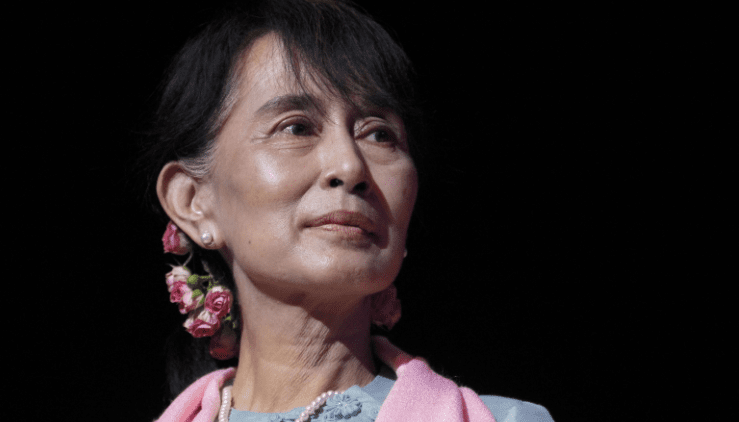In the thick of Myanmar’s democratic transition, citizens find themselves caught between the elected government, the authoritarian military, and paranoid ethnic armed groups reluctant to renounce political power.
When I told friends that I was going to Myanmar, the most common response I received was: ‘Where’s that?’
It’s a fair enough question. Myanmar has been entirely closed to the outside world for much of the last 70-odd years, operating under the repressive military dictatorship of General Ne Win and his Burma Socialist Programme Party. During his tenure, Ne Win and his cabinet attempted to eradicate all Western influences from the country by withdrawing Myanmar from the global economy and restricting foreign travel. In the 1960s and 1970s, it was impossible to obtain a visa to Myanmar for longer than 24 hours. Following a series of brutally suppressed civil protests and subsequent retrenchments in the 1990s and 2000s, it was the West’s turn to cut Myanmar off. Investment, trade and tourism were all boycotted to alienate the military government and strangulate its funding. It was only in 2016 that the USA decided to lift economic sanctions.
For a long time, then, Myanmar has been flying under the radar. However, if there were a time to start paying attention, it’s now.
Myanmar is on the verge of a take-off – both political and economic. Its rapidly expanding oil and gas extraction sector and vast reserves of jade and precious gems have caught the attention of foreign investment giants like China and the USA. In the last 12 months, massive injections of foreign capital have kick started its sluggish financial sector, making Myanmar among the world’s top ten fastest growing economies in 2017.
Last year, its first ever free and fair elections catapulted Aung San Suu Kyi’s National League for Democracy (NLD) to into Parliament with a 67 per cent lead over the military-backed USPD. International spectators have hailed the victory as a triumph for democracy and liberal values. Many hope that Aung San Suu Kyi can be a force for change – capable of healing internal divisions and suspicion in centralised government, incited by decades of authoritarian rule.
***
But this unbridled optimism is not without its limitations. The NLD will need to make a concerted effort to safeguard Myanmar’s future development against corruption and corporate greed. Myanmar is ripe for exploitation by multinationals, with lax regulations and an economy in dire need for foreign capital. Business is increasingly conducted in secrecy by a growing class of ‘crony capitalists’, many of who have strong ties to the military administration. The corporate elites – and by extension, the military – have significant economic stakes in everything from breweries to banking. Profits from investment and development are likely to wind up lining the pockets of veterans or flowing indirectly into military coffers.
Keeping the military in check will be the NLD’s greatest challenge, which they may not have the capacity to address. Despite the democratic transition, the military still dominates Myanmar’s political circles. It has a veto against constitutional change, direct control over the ministries of Home Affairs, Border Affairs and Defence, and a guaranteed 25 per cent of seats in both the state and national parliaments.
Since independence, the military has also played a fundamental role in maintaining the unity of the state by suppressing ethnic-based insurgencies. Frequently, these conflicts are motivated by more than a pure patriotic duty. Under the pretence of preventing rebellion or secession, the military have legitimised taking control of land and resources in ethnic minority regions. The resulting civil strife has been protracted and bloody – of the 16 recognised ethnic armed organisations in the country, only half have signed a National Ceasefire Agreement. Even among signatories, trust in the central authorities remains exceedingly low.
***
While in Myanmar as part of ASIA2090, we were invited to attend a panel discussion with members of a Baptist church group in Taungoo, a city in ethnic Karen homeland. The region is known for its betel nut, a largely Christian ethnic minority, and for producing one of this year’s finalists in the spin-off talent show, Myanmar Idol. Up until 2014, when an informal bilateral ceasefire signed in 2012 came into effect, Taungoo experienced intense ethnic conflict between the Myanmar Military and the Karen National Union (KNU).
Tensions remain despite an official cessation of hostilities. The region has suffered from the devastation of war and is in dire need of development infrastructure. Villagers just want to return to civilian life – but the KNU is resistant to any extension of central government power into the region. They have expressly blocked the expansion of roads and bridges, for fear this would enable the military to renew its operations and attack the KNU itself. Without access to the mountainous region, there is little the NLD can do to provide the improvement to basic services like education and healthcare that are so urgently required. One of the members on the Baptist panel likened the situation to the grass beneath fighting buffalo: in the struggles between political elites, civilians are the first to get trampled.
Populism may have swept Aung San Suu Kyi to power, but Myanmar’s current political climate is mired in obfuscation and captured allegiances. The reality for most living in ethnic regions is that little has changed. The NLD faces a long road ahead if it wishes to overturn the political frameworks and overcome the deep divisions which continue to hold back the nation’s development.
We acknowledge the Ngunnawal and Ngambri people, who are the Traditional Custodians of the land on which Woroni, Woroni Radio and Woroni TV are created, edited, published, printed and distributed. We pay our respects to Elders past and present. We acknowledge that the name Woroni was taken from the Wadi Wadi Nation without permission, and we are striving to do better for future reconciliation.
